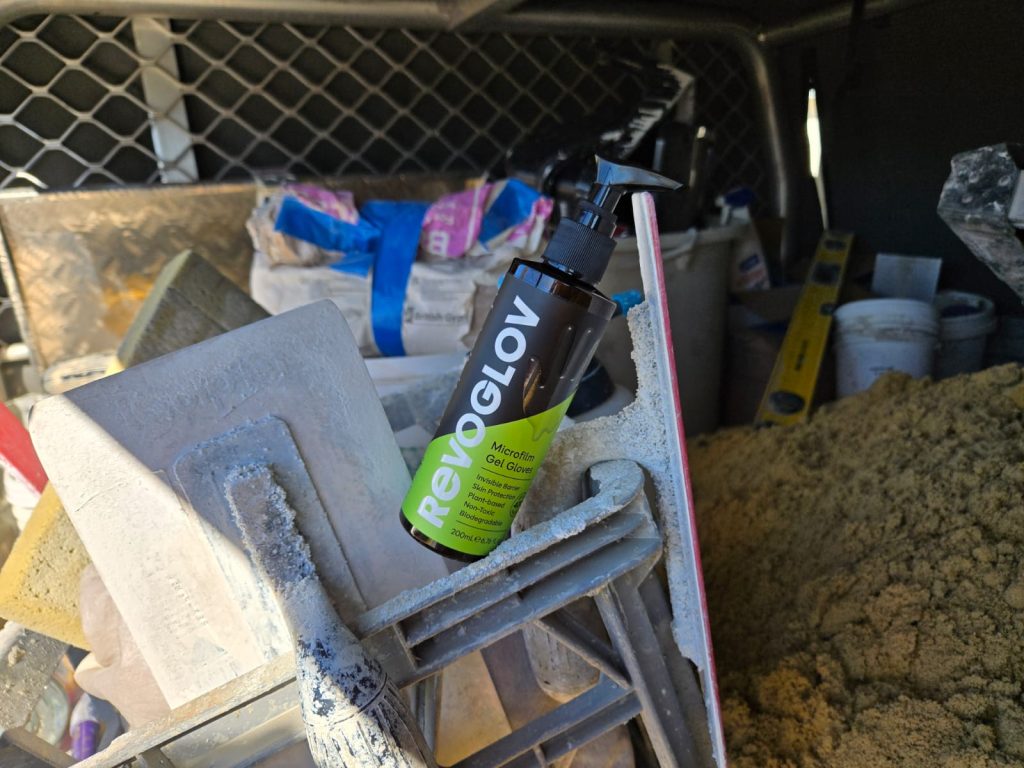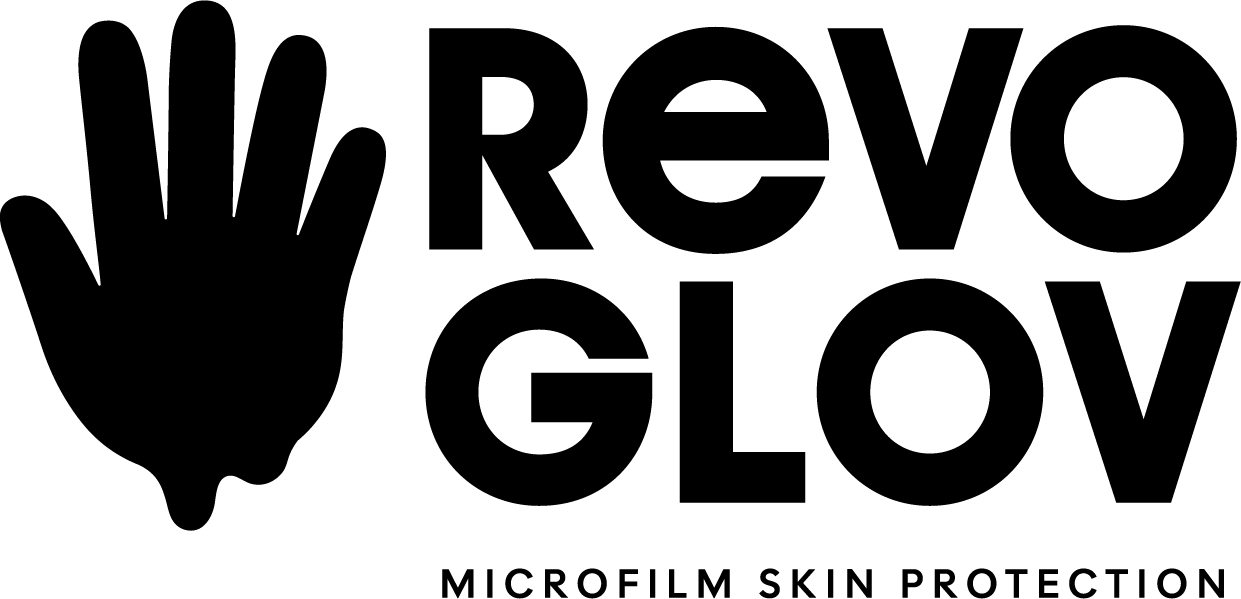Beyond the Glove: Sustainable Protection | RevoGlov

The Glove Issue No One Talks About
Every year, the world discards 780 billion disposable gloves—enough to fill about 674 Olympic-sized swimming pools.
Most gloves are worn for just minutes. Then they end up in landfill or, worse, break down into microplastics that drift into rivers, oceans, and food chains. One disposable glove can fragment into millions of microplastic particles—small enough for plankton to ingest and carry up the food chain. Although the precise number of particles varies depending on glove type, weathering, and environmental conditions, laboratory studies have confirmed that UV degradation and mechanical abrasion of nitrile, latex, and vinyl gloves cause significant microplastic shedding over time.
It is easy to overlook the issues with nitrile, latex, and vinyl gloves because they seem necessary. Gloves help keep hands clean, protect food and products, and meet strict hygiene standards. However, there is a hidden but real cost, not just to the environment but also to ourselves, from microplastics.
A 2025 study by Nature Medicine found that microplastics are routinely present in human blood, placenta, lungs, testes and even brains. Much of the microplastics ingested comes from convenience products such as gloves rather than sustainable products.
We have successfully reduced the use of single-use shopping bags, reduced plastic straw use, and promoted reusable coffee cups. However, single-use gloves are not considered a problem.
This is one reason why RevoGlov exists – to tackle an overlooked waste issue with smarter, cleaner technology that benefits the people using it, the companies applying it, and the planet.
RevoGlov – A Different Type of Protection
RevoGlov does not feel or look like a typical glove – because it isn’t one. It is a plant-based hydrogel that’s applied, left to dry, and forms a barely visible microfilm coating on the skin.
RevoGlov’s advantages are it:
- Dries in 30-60 seconds to form a thin, breathable, “second skin.”
- Protects against contaminants in dry environments.
- Is fully biodegradable – no microplastics, no landfill.
- Has a 41% lower carbon footprint of manufacture than latex gloves (independent life cycle analysis)
- Is lightweight to ship – reduces emissions, packaging waste, and
- Removes the need for post-use storage and disposal
Once users are finished working with RevoGlov, they simply wash their hands! The microfilm dissolves, breaking down safely into its components with no harmful residues.
The Problems with Single-Use Gloves
Gloves are used in millions of workplaces every day. While gloves help protect people and products, their environmental impact is considerable in several areas.
Production
Manufacturing conventional latex, nitrile, or vinyl gloves is resource-intensive—requiring substantial amounts of water for processing and leaching, energy for high-temperature curing, and petroleum-based or natural rubber raw materials. Specifically for nitrile gloves, production depends on synthetic polymers derived from fossil fuels, locking in upstream emissions before the gloves are even packaged.
Packaging and Shipping
Gloves are usually packaged in sets of 100, wrapped in plastic, and shipped in bulk. The transportation’s carbon footprint—especially when gloves are imported over long distances—adds to the overall environmental impact (UNEP, 2021). Each shipment also has hidden emissions from freight, warehousing, and distribution.
Disposal
Once used, most disposable gloves cannot be recycled because of contamination risks. They are either incinerated, releasing CO₂ and potentially toxic byproducts, or sent to landfill, where they can remain for decades (Rizan et al., 2021).
Incorrect Disposal
Improperly discarded gloves often enter waterways or break down in open environments. Over time, UV light and mechanical abrasion fragment them into microplastics—small enough to be ingested by plankton, fish, and shellfish, increasing the risk of bioaccumulation through the food chain (Sul & Costa, 2014).
A Considerably Smarter and Lower-Impact Solution
RevoGlov solves these problems by changing the product model entirely. The environmental benefits are:
- Biodegradable – will leave no lasting microplastics behind.
- Carbon footprint significantly reduced compared to latex gloves.
- No “landfill load” – simply washes away, eliminating the need for glove waste bins.
All of these benefits come with reduced costs to the business as well:
- Reduced disposal costs are significant for industries facing increasing waste levies.
- Reduced space – no need for storage of bulky gloves.
- Reduced logistics – fewer deliveries and reduced packaging waste.
When to Use RevoGlov (and when not to)
RevoGlov is mainly suitable for dry tasks with a light barrier, where tactility and dexterity are essential. For example,
- Tinkering under the car hood
- Messy jobs around the house
- Handling plasters and cements
- Painting and Crafts
RevoGlov is not designed for :
- Heavy-duty work – where protection from physical hazards is needed.
- Wet environments – where your hands are immersed in water; or
- Surgical or medical environments where PPE standards insist on Latex gloves; however, RevoGlov can be used as an under glove for people with latex/silicone allergies
- Working with corrosive products.
A responsible approach to sustainability is to use the right tool for the job, rather than trying to do everything in one product.
The regulatory and ESG advantage
Sustainability is no longer a nice-to-have. It is now a compliance obligation.
In Australia, the Australian Sustainability Reporting Standards (ASRS) have seen the shift from voluntary disclosure to mandatory ESG reporting. This therefore means that businesses are required to measure, verify and reduce their environmental impacts, from sourcing to disposal.
By moving to biodegradable solutions such as RevoGlov, we can:
- Directly reduce reported waste volumes.
- Support Carbon reduction targets.
- Prove compliance in an evolving standards landscape.
- Build trust with sustainability-aware customers, staff and investors.
Early adopters know that they are moving beyond compliance and leading the way for others to follow.
End of Life: Biodegradability Dividend
With RevoGlov, the removal process is simple:
- Wash under running water after use.
- The film washes away completely.
- No landfill, no incineration, no additional management costs.
This simplification not only reduces carbon footprint but also simplifies disposal.
The Bigger Picture: Beyond Single-Use Gloves
The movement away from single-use plastics is increasing. For many businesses, the question is not if you will be required to change, but how soon.
By adopting RevoGlov to replace even a fraction of your glove use, you may be able to:
- Reduce plastic waste, at any scale.
- Lower disposal and storage costs.
- Enhance your sustainability credentials.
- Drive industry change.
With moving consumer expectations having never been higher, visible action on sustainability is no longer a choice but a competitive advantage.
Want to Rethink the Glove?
RevoGlov has demonstrated that performance and sustainability can coexist.
By rethinking something as mundane as a glove, we can achieve phenomenal benefits for the planet—and for the employees that depend on protection in their work.
Start small. Start now. Audit your glove use. Identify where a plant-based, biodegradable alternative might replace single-use.
Protect what matters—without costing the earth.
